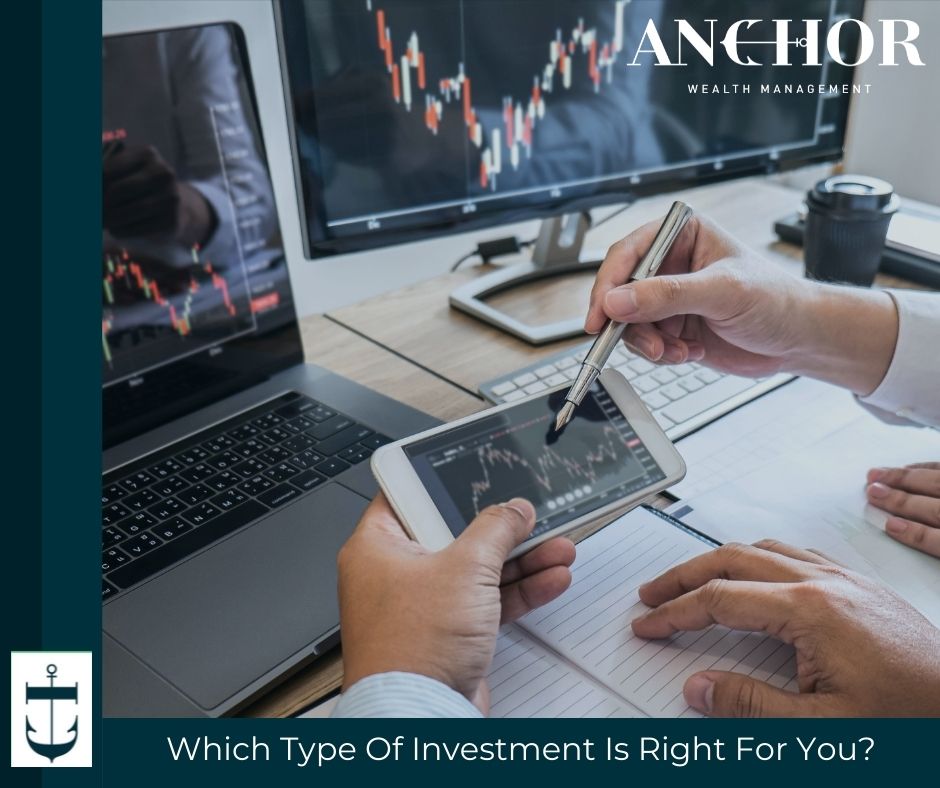
Investing is something that we all do whether we realize it or not. When we attend college or some other type of higher education, we’re not only investing money but we’re investing time in hopes that it will pay off in the future. If you’re looking to buy a new car, you’ve probably done your research to determine which one is more reliable. And although investing in the more expensive car may seem like a poor investment, it may serve you better in the long run, requiring fewer repairs or breaking down less frequently.
These are just a few common investments that people make throughout their lives. Although these are investments many people make, not everyone is considered “an investor.” Typically, this term is used to describe people who put money into something with the specific intention of seeing a financial return on them. So how do you make the leap from being “someone who invests” to “an investor?” Keep reading to learn what type of investing may be right for you based on your goals.
Short-Term Investing
Investing for the short term means that you’re expecting to see quick returns on an investment. Although the term “short-term” may imply that there is less risk involved, this is often not the case. Many people who are looking into short-term investments are expecting a “get rich quick” plan, but it simply doesn’t work like that in the real world. Instead, investors often recommend more secure investments that allow for gradual returns. Let’s take a look at some of these.
High-Yield Savings Account
A high-yield savings account is similar to traditional deposit savings accounts offered by online or brick and mortar banks, but it offers a higher interest rate. They offer the same Federal Deposit Insurance Corporation (FDIC) coverage as banks and they’ll help you reach your goals faster by providing a higher yield.
Fixed-Income Funds
As a relatively stable way to get a return, fixed-income funds are often a good alternative to a money market or savings accounts. The good thing is that they’re designed to limit losses in a down market meaning there is less risk involved. This is a good option for money you are planning to spend in the next five years.
Money Market Accounts and CD Ladders
If you’re looking for an alternative to a savings account, you may be able to earn more in a certificate of deposit instead. However, the downside is that you’ll need to keep your money locked up for a year or more in order to take advantage of the best rates. But if you want to keep some of this money liquid, you’ll need to set up a CD ladder which divides funds into something called certificates of deposit and setting them to different maturity dates. This will decrease re-investment risks and interest rates.
Long-Term Investments
The good thing about a long-term investment is that you can actually afford to risk a down market because it will likely rebound before the money is needed. But you should still focus on moving money to bond and fixed income funds as you approach the time it will be used to live on. As you get closer to retirement, money should generally be moved to less risky investments.
401(k)s and IRAs
401(k)s are what many people think of when long-term retirement planning comes to mind. The benefit of 401(k)s and IRAs is that they’re tax-favored accounts and employee sponsored 401(k)s may have an additional company match on the funds that are contributed by the employee. Depending on whether you choose a traditional or Roth IRA, you’ll either get an immediate or future tax deduction. Which one you choose will depend on how much income you have now versus how much you expect to have when you retire.
Index Funds and ETFs
If you’re looking for a long-term investment to help you save up to buy a business or buy a home, index funds and ETFs could be an option. Investment accounts can be opened through a brokerage and the exchange-traded funds and index funds they use will provide low fees and a good value. Both ETFs and index funds contain securities that help to spread the risk but ETFs are more variable whereas index funds are used to keep pace with the market.
Actively Managed Mutual Funds
Another option for long-term investment is actively managed mutual funds. It’s important to know that actively managed mutual funds come with higher expense ratios. Having active management gives us the ability to outperform an index over a longer duration and, historically, there are actively managed mutual funds that have this track record. With this type of investment, you should focus on reaching your end goal than achieving regular benchmarks. As with any short-or long-term investment, you should fully evaluate your risk tolerance level before committing to anything.
Consult With A Professional Financial Advisor
No matter where you are in life, short- and long-term investing can help you achieve financial success. However, without a qualified, experienced, and dependable financial advisor, investments may seem like a shot in the dark. Here at Anchor Wealth Management, we not only help you to understand your current financial situation better, but we’ll provide guidance on how you should invest it based on your goals. Since 2005, our team has helped new and experienced investors alike navigate an uncertain financial landscape. If you have any questions or you’re ready for a consultation with us, give us a call today.
Investing involves risk. Depending on the types of investments, there may be varying degrees of risk. Investors should be prepared to bear the loss, including total loss of principal.
